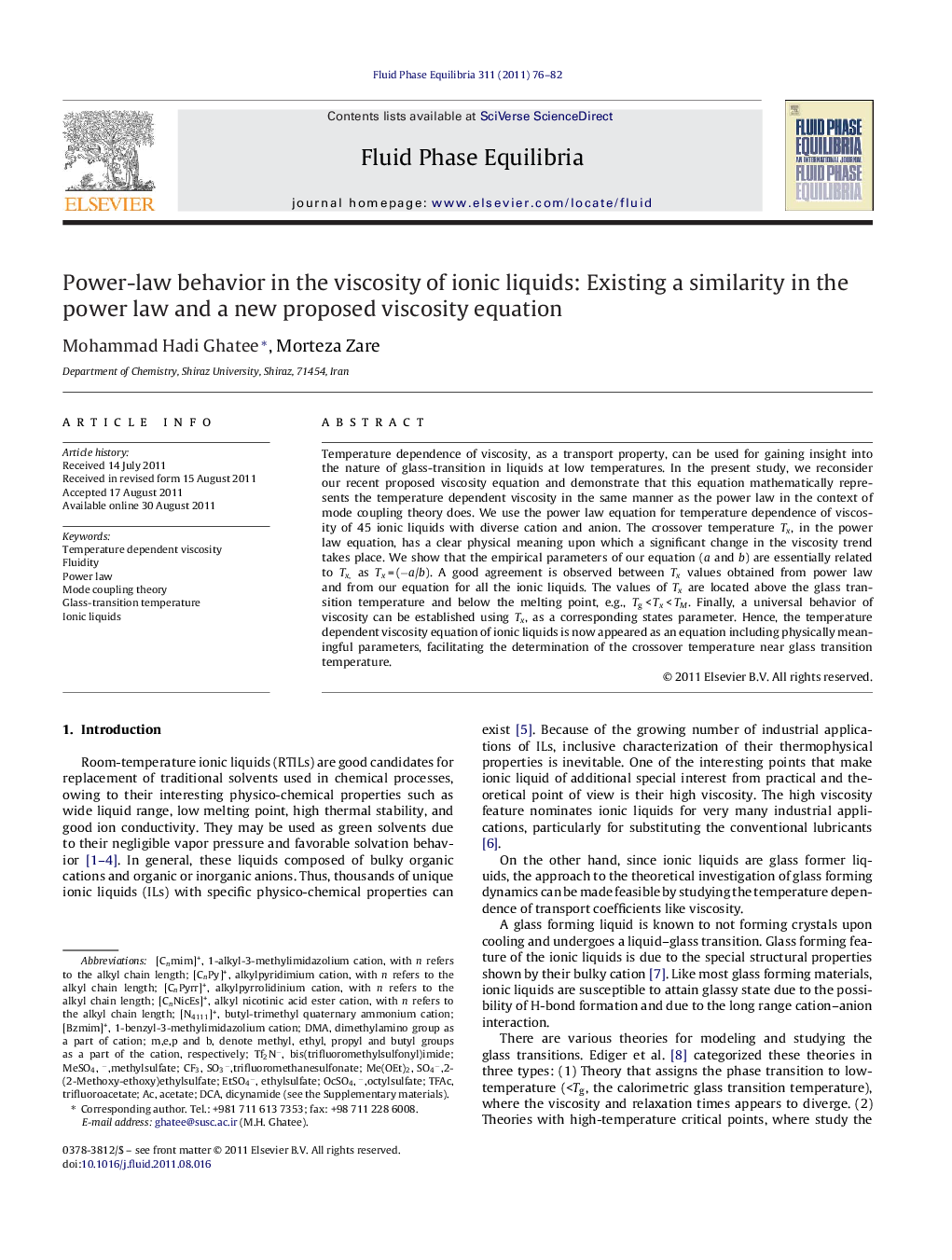| Article ID | Journal | Published Year | Pages | File Type |
|---|---|---|---|---|
| 202048 | Fluid Phase Equilibria | 2011 | 7 Pages |
Temperature dependence of viscosity, as a transport property, can be used for gaining insight into the nature of glass-transition in liquids at low temperatures. In the present study, we reconsider our recent proposed viscosity equation and demonstrate that this equation mathematically represents the temperature dependent viscosity in the same manner as the power law in the context of mode coupling theory does. We use the power law equation for temperature dependence of viscosity of 45 ionic liquids with diverse cation and anion. The crossover temperature Tx, in the power law equation, has a clear physical meaning upon which a significant change in the viscosity trend takes place. We show that the empirical parameters of our equation (a and b) are essentially related to Tx, as Tx = (−a/b). A good agreement is observed between Tx values obtained from power law and from our equation for all the ionic liquids. The values of Tx are located above the glass transition temperature and below the melting point, e.g., Tg < Tx < TM. Finally, a universal behavior of viscosity can be established using Tx, as a corresponding states parameter. Hence, the temperature dependent viscosity equation of ionic liquids is now appeared as an equation including physically meaningful parameters, facilitating the determination of the crossover temperature near glass transition temperature.
Graphical abstractFigure optionsDownload full-size imageDownload as PowerPoint slideHighlights► Reconsidering our recent equation proposed for the temperature dependent viscosity of ionic liquids. ► Showing this equation is essentially the same as power law based on mode coupling theory. ► Parameters meaningfully correspond to fragile-strong crossover temperature. ► The proposed equation demonstrates the universal behavior of the ionic liquids. ► Keeping the privileges of being linear, provide more than a fitting equation.
